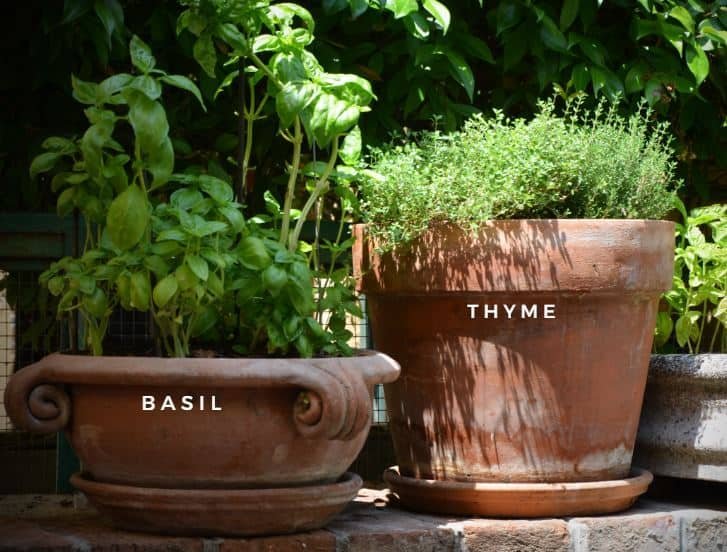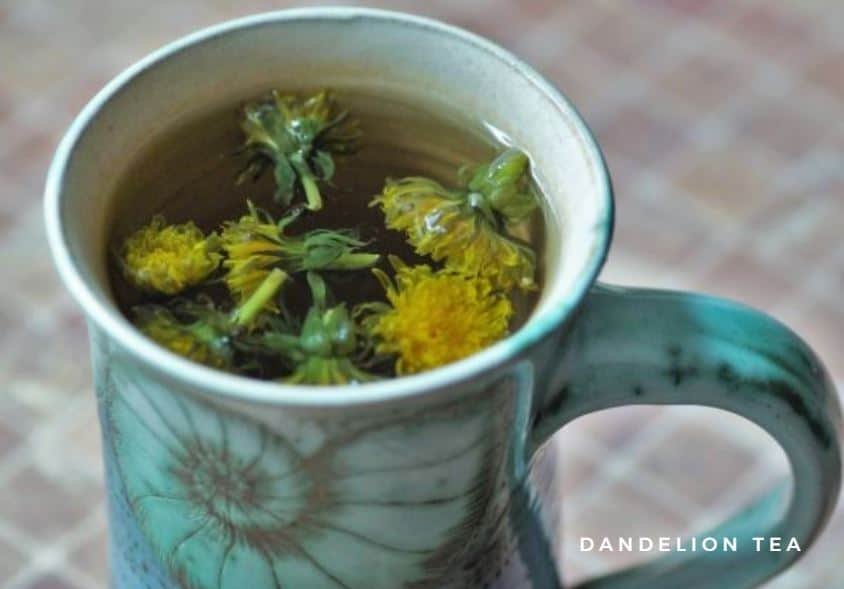Imagine elevating your home-cooked meals from tasty to therapeutically beneficial. Herb gardens make this possible, serving as an immediate source of both flavor and medicinal benefits. These humble plants do more than just garnish your dishes; they are nutrient-dense powerhouses that can aid digestion, reduce inflammation, and boost your immune system. From the invigorating aroma of basil to the soothing essence of Chamomile, herb gardens offer an array of options to make every meal a step towards better health. Read on to explore how you can integrate this age-old wisdom into your modern kitchen.
Infusing Wellness into Home-Cooked Meals
Herb gardens are more than just a source of fresh basil for your pasta or mint for your mojitos. These verdant plots offer a myriad of lesser-known medicinal benefits that can elevate your health. For instance, have you ever thought of adding thyme to your morning smoothie for its antiseptic properties or infusing rosemary into your oils for its cognitive-enhancing effects? The culinary opportunities are endless, from making herb-imbued ice cubes to incorporating oregano in your salad dressings.
Daily hacks like adding fresh herbs to your water bottle can gradually form a shield against health problems. Let’s talk about inflammation, a silent but detrimental process that can lead to chronic diseases if left unchecked. Herbs like turmeric, ginger, and calendula are powerful anti-inflammatory agents. A sprinkling of ground turmeric in your soups or a cup of ginger tea can help mitigate inflammation, providing a natural preventive measure right from your garden. By tapping into the full medicinal potential of your herb garden, you spice up your meals and nourish your body for long-term wellness.
Herb Gardens And Cheap Remedies For Inflammation – A Common Thread
Herb gardens and cheap remedies for inflammation have one common thread: Both offer roots to wellness and leaves of relief! Inflammation can be both a symptom and a cause of various health conditions, from arthritis to allergies. While over-the-counter medications can offer relief, many are turning to more natural options for a holistic approach to health. The good news is that your herb garden can be a treasure trove of anti-inflammatory compounds.
- Aloe Vera: Known for its soothing properties, aloe vera is great for topical application on inflamed skin.
- Basil: This common kitchen herb contains anti-inflammatory compounds like flavonoids, making it a versatile addition to your natural remedy toolkit.
- Calendula: Often used in creams and ointments, calendula has anti-inflammatory properties that can alleviate skin irritations.
- Common Nettle: This herb contains natural antihistamines and anti-inflammatory compounds that can be consumed as a tea or supplement.
- Dandelion: More than just a weed, dandelion has anti-inflammatory properties that support liver health and digestion.
- Echinacea, Feverfew/Butterbur: These herbs are primarily known for their immune-boosting properties but also help reduce inflammation.
- German Chamomile: The calming effects of Chamomile extend to its anti-inflammatory capabilities, making it great for skin issues and digestive discomfort.
- Ginger, Goldenseal, Lemon Balm: These herbs can be consumed in various forms to combat internal and external inflammation.
- Peppermint, Red Clover, Rosemary: With their anti-inflammatory compounds, these herbs offer a range of options for tackling inflammation through teas, oils, and even cooking.
- St. John’s Wort, Thyme, Yarrow: These herbs round out your anti-inflammatory arsenal, offering options for topical application, internal use, or aromatherapy.
By incorporating these herbs into your diet and wellness routine, you can manage inflammation naturally and cost-effectively. Whether in your kitchen or your garden, relief is just a leaf or root away.
Herb Gardening – These Planting Tips Are Swell

Planning is everything when it comes to having a perpetual supply of fresh herbs at home. Some noteworthy tips to consider are determining when is the best time to plant, identifying which herbs flourish indoors or outdoors, and whether certain herbs need a home in the ground or if potting is okay.
For example, of the herbs listed above, only two would be happiest planted outdoors and in the ground: Echinacea and Yarrow. Another thing they have in common is their seeds can be sown in Spring or Fall. Something to note about Echinacea is that their roots run deep, so they don’t take too kindly to being transplanted. Identifying and dedicating a spot in the yard or garden should be the first order of business.
Yarrow, on the other hand, does not play well with cucumber plants because the powdery mildew it sheds sticks to the cucumber and ultimately spoils it.
Next up is one that would flourish indoors, outdoors, and in a pot: German Chamomile. Its roots don’t need depth, so containers are the way to go. In only requires full sun and well-draining soil to keep its roots moist.
To continue with the list of herbs, only one would flourish outdoors, either in a pot or in the ground: Goldenseal. Their seeds can be planted in the Spring and prefer residing under dappled sunlight instead of complete shade, roughly 75% shade.
This duo will flourish in pots and thrive outdoors: Common Nettle and Feverfew/Butterbur. Common Nettle can be planted in early Spring, while Feverfew/Butterbur can be planted from Spring through early Fall.
Finally, the remaining herbs on the list will flourish both in the ground or pots and thrive indoors or outdoors. Although every plant requires attention to meet its unique needs, some characteristics, like planting timeframes, are noteworthy. For instance, Red Clover can be planted from early Spring to late Summer, Dandelions from early Spring through early Fall, Rosemary, Thyme, and Calendula can be planted in the Spring, Lemon Balm can be planted late Spring, St. John’s Wort can be planted from Spring to Early Summer, Aloe Vera and Basil can be planted in Spring and/or Summer, Peppermint and Ginger can be planted in the Spring and/or Fall.
Herb Gardening – Reaping The Benefits

Embracing the timeless practice of cultivating a herb garden empowers you with the ability to treat inflammation naturally and offers the gratification of nurturing your own medicine. Imagine sipping on homegrown herbal teas infused with your own Basil and Dandelion, applying essential oils extracted from your garden’s blossoms, or even creating natural supplements that help keep inflammation under control. The natural world has so much to offer, so as you cultivate your herb garden, think of it as sowing the seeds for better health. As you nurture your herbs, they will, in turn, nurture you. Welcome to herbal healing! Buy your seeds now.
“The fork is your most powerful tool to change your health and the planet; food is the most powerful medicine to heal chronic illness.”
~Mark Hyman, M.D.
MEDICAL DISCLOSURE
I am not a doctor. The content on this blog post is for entertainment purposes only. Consult with healthcare professionals or herbalists to understand the proper dosage and method of consumption for your specific needs. Herbs are potent, and improper use can lead to adverse effects. With appropriate guidance, these herbal allies can be a valuable part of a proactive healthcare routine.
AFFILIATE DISCLOSURE
This post contains affiliate links that if clicked, may yield a small commission.
Inflammation, Cheap remedies for Inflammation, organic remedies for Inflammation, natural remedies for Inflammation, Inflammation at home remedies, how to cure Inflammation at home fast, herb garden, fresh herbs, perennial herbs, plant herbs, harvest herbs, annual herbs, growing herbs, most herbs, own herbs, herb plant, raised bed, herbs grow, many herbs, grow herbs, herb plants, herb seeds, flowering herbs, culinary herbs, other herbs, perennial herb, most culinary herbs, raised garden bed, pizza herb, cilantro seeds, growing annual herbs, raised beds, tiny plants, own container, terra cotta pots, fresh compost, well draining soil, grow from seed, easiest herbs, mint family, moist soil, sow seeds, growing season, dried herbs, drainage holes, container gardening, tender perennials, grow indoors, beneficial insects, earthy flavor, clay soil, pasta sauce, grow mint, hours of sunlight, herb gardens, small pots, grow basil, herbs, cold hardy, too much sun, large container, best herbs, other plants, root ball, easiest plants, smaller plants, growing space, delicious leaves, same depth, plants, garden, organic matter, life cycle, herb, plant, seeds, herbs such as basil, new gardeners